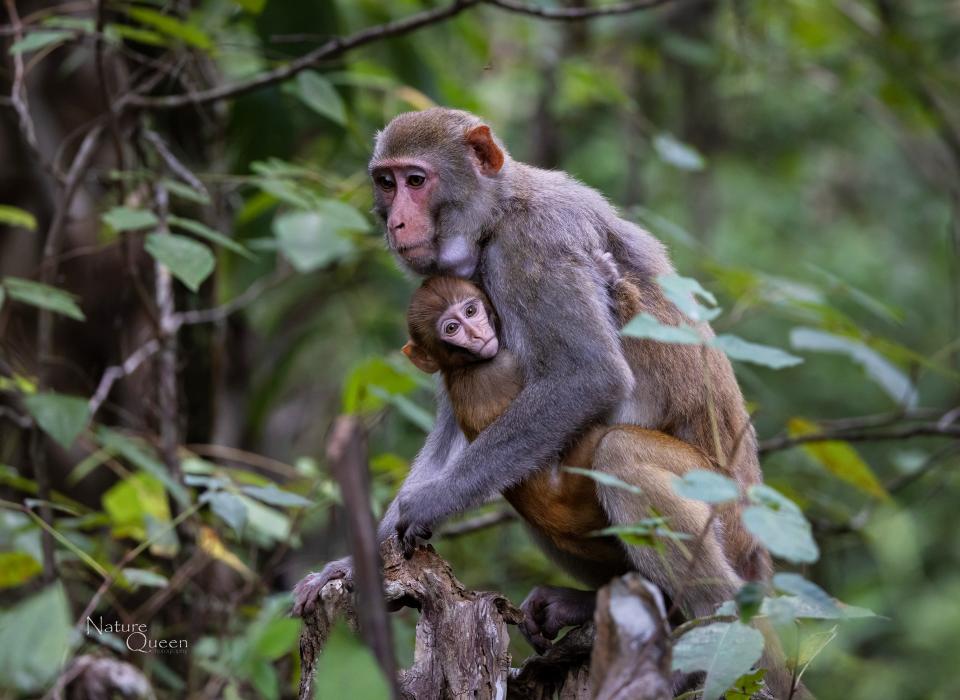Are there monkeys in Florida? Videos show sightings in this part of the state
Alligators in the kitchen? We're used to it. Shark attacks? No problem. 17-foot Burmese python? Big deal.
Wild monkeys scampering over your roof and walking through your neighborhood? Some Floridians are coming to terms with it, especially during recent sightings in Central Florida's Groveland and Clermont shared on social media.
"I was picking up my daughter from school at South Lake High School in Groveland and then I saw this animal walking in the sidewalk," caterer Naxel Miranda of Miranda's Kitchen told The Daily Commercial. "I thought was a cat or something like that because I’m not used to seeing monkeys in Florida, but when I get closer was a monkey and that’s when I took my phone out and start recording the video."
Florida residents have seen the primates monkeying around for years. One wild monkey captivated locals as it roamed around Orange City for weeks last August. Monkey sightings popped up in St. Johns, Putnam and Duval counties in 2020. Several of them charged a family at Silver Springs State Park in 2017. There have been 236 reports of them since 1959, with most of them between 2007 and November 2023, according to Florida Fish & Wildlife Conservation Commission (FWC) reports and tracking by the University of Georgia.
The creatures are likely rhesus macaque monkeys, primate expert Linda Wasko, president of Primate Paradise in Osteen, told FOX 35, possibly descendants of the first six brought to Florida by a man hoping to jazz up his jungle boat tour in the 1930s.
What are rhesus macaque monkeys?

Rhesus macaque monkeys are one of two monkey species that have been established and are reproducing in Florida, the other being vervet monkeys.
They are native to Afghanistan, Pakistan, India, Southeast Asia and China, but were introduced to Florida by a cruise operator named Colonel Tooey, according to a post by the Wildlife Ecology and Conservation Department, UF/IFAS Extension. He let them loose on a small island in the Silver River, but rhesus macaque monkeys are very good swimmers and struck out on their own almost immediately. Since then the monkey population in the area has increased dramatically.
Nearly 1,400 rhesus macaques were brought to the Florida Keys by a laboratory animal breeding company in the 1970s but they were ordered removed in 1997 after they destroyed 30 acres of mangroves. A third set of them were brought in by an amusement park called Tropical Wonderland in Titusville and they either escaped or were released when the park closed in 1976. The FWC planned to trap the 35-75 monkeys reported roaming the area but it is unclear how effective this was.
Rhesus macaque population growth in Florida was reduced from 1984 to 2012 when about 1,000 monkeys were trapped and removed, but this became controversial due to the monkeys being killed or given to testing facilities and was halted.
Adults are brown to gray with pink faces, the FWC said, and mostly herbivorous although they will eat insects and bird eggs. Males can roam for miles.
Are rhesus macaque monkeys dangerous?
Monkeys that have been fed can become territorial and more aggressive.
Wild animals also can carry diseases that can be fatal to humans such as rabies, hepatitis B and B herpes, officials from the FWC and the Centers for Disease Prevention (CDC) said.
"B virus infection is extremely rare, but it can lead to severe brain damage or death if you do not get treatment immediately," the Centers for Disease Prevention (CDC) said. "People typically get infected with B virus if they are bitten or scratched by an infected macaque monkey, or have contact with the monkey’s eyes, nose, or mouth."
If you are bitten or scratched by a wild monkey, immediately wash the wound and seek medical attention according to CDC guidelines.
More monkeys coming? Panhandle residents worry about nearby facility that would breed, house up to 30,000 monkeys
Can I feed wild monkeys?
Feeding wild monkeys is a second-degree misdemeanor in Florida that can carry up to 60 days in jail and a $500 fine if convicted, according to a 2018 prohibition from the FWC.
The FWC advises residents to avoid them when spotted and do not offer food. Keep pets on a leash and watch small children, and dispose of uneaten food and garbage in closed trash containers.
"The biggest message we'd like residents to heed is that it could be very dangerous," Orange City police Lt. Sherif El-Shami said in 2023. "Don't feed it. Don't pet it. It's not your average animal at the zoo."
What should I do if I see a rhesus macaque monkey?
Wild monkeys are common enough in some areas that the FWC asks that you report them only if you see them outside their core population area in Marion County. To report a monkey sighting:
Try to take a picture or video
Note the location
Call the FWC’s Exotic Species Hotline at 888-IveGot1 (888-483-4681).
If you see a wild monkey posing an imminent threat to humans, call 911 or the FWC's Wildlife Alert Hotline at 888-404FWCC (888-404-3922).
This article originally appeared on The Daytona Beach News-Journal: Monkeys in Florida sighted roaming around Central Florida areas

